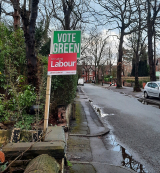
David Lammy has urged the UK and EU nations to allocate more resources to defence, warning that Europe faces an "existential question" even if a peace agreement is reached in Ukraine.
Speaking at the Munich Security Conference, the UK Foreign Secretary emphasized that Russian President Vladimir Putin remains a persistent threat. While it is a positive development that 23 NATO countries now allocate at least 2% of their GDP to defence, Lammy insisted that spending must continue to rise. He reaffirmed the UK’s commitment to reaching 2.5% of GDP for defence and pledged that a roadmap to achieve this target would be unveiled in the coming months.
His remarks followed comments from US Vice-President JD Vance, who called on Europe to "step up in a big way" to secure its own defence. Vance argued that Europe's biggest threat is internal, citing concerns about migration, free speech, and declining adherence to core values.
The case for greater European defence spending
During a panel discussion on European security, Lammy reiterated that successive US presidents have urged NATO members to boost their defence budgets. He pointed out that Europe, despite its combined GDP, is spending just 0.01% of its total economy on supporting Ukraine. He stressed that Ukraine’s security is directly tied to Europe’s security, warning that even if a negotiated peace is reached, Putin’s ambitions will not simply disappear.
Lammy also acknowledged the US shift in focus towards the Indo-Pacific, where China poses a major geopolitical and economic challenge. He referenced historical ties between the Euro-Atlantic and Indo-Pacific regions, particularly during World War II, when 30,000 British soldiers lost their lives in the Pacific theatre.
Past inaction and the need for a stronger response
In a joint article for The Telegraph, Lammy and Defence Secretary John Healey admitted that the West had not done enough in 2014, when Russia first invaded Ukraine. They stressed that the UK and Europe must now work together to share the burden of security.
As part of its renewed commitment, the UK has pledged an additional £150 million in military aid to Ukraine and imposed new sanctions on individuals close to Putin, emphasizing that the Russian leader "only responds to strength."
Ukraine’s call for a unified European military force
Ukrainian President Volodymyr Zelensky met with Vance on Friday, where he sought security guarantees ahead of planned US-Russia peace talks. Speaking at the Munich Security Conference, Zelensky called for the formation of an "army of Europe" to ensure the continent’s security remains in European hands.
"Europe needs a single voice, not a dozen different ones," he said, advocating for a unified military structure rather than fragmented national forces.
Future security measures and UK’s role
Asked about potential security guarantees, Lammy suggested that a long-term military and financial partnership would be the best approach. He highlighted the UK’s newly signed 100-year partnership with Ukraine, encouraging the US and Ukraine to consider similar deep, long-term commitments.
"The best security guarantee is binding US industry, business, and defence capabilities into Ukraine’s future," Lammy stated, adding that this approach would force Putin to "sit up and pay attention."
Could a Peacekeeping Force Be Deployed?
Some experts have proposed a peacekeeping mission in Ukraine. Lord Dannatt, former head of the British Army, estimated that 100,000 troops would be required, with the UK potentially needing to contribute 40,000 soldiers. However, he warned that Britain's current military capabilities are severely depleted, making such a commitment challenging.
Similarly, Sir Richard Shirreff, former NATO deputy supreme commander, echoed the sentiment, calling 100,000 troops the minimum requirement. He described the current moment as "defining" for European militaries and governments.
As geopolitical tensions persist, Lammy’s call for greater defence spending reflects a growing consensus among European leaders that a stronger, more self-reliant Europe is crucial for future security. Photo by Policy Exchange, Wikimedia commons.








































